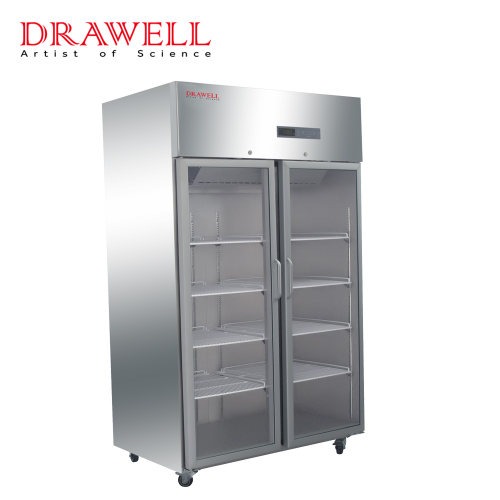Ultra-low temperature freezers are specialized to achieve and sustain such low temperatures. To ensure dependable and consistent functioning, they are often built with heavy-duty insulation, high-quality materials, and modern refrigeration systems. The cascade refrigeration system, which uses two or more compressors in series to achieve ultra-low temperatures, is the most prevalent form of cooling system used in ultra-low freezers. These freezers also feature advanced temperature control systems that provide exact temperature settings, temperature fluctuation warnings, and data logging features for monitoring and recording temperature data over time.
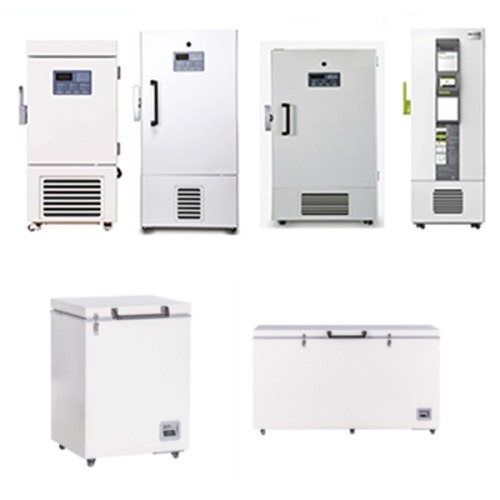
Definition Of Ultra-Low Temperature Freezers
Ultra-low temperature freezers (ULT freezers) are complex refrigeration systems designed specifically to store and preserve samples at extremely low temperatures. They can reach and maintain temperatures as low as -86°C, well below the freezing points of water and most organic compounds. This extreme cold helps to prevent sample deterioration, enzyme denaturation, and other undesirable chemical reactions that may occur at higher temperatures, preserving the integrity and viability of samples for long-term storage.
The construction and design of this kind of laboratory refrigerator are specialized to achieve and sustain such low temperatures. To ensure dependable and consistent functioning, they are often built with heavy-duty insulation, high-quality materials, and modern refrigeration systems. The cascade refrigeration system, which uses two or more compressors in series to achieve ultra-low temperatures, is the most prevalent form of cooling system used in ultra-low freezers. These freezers also feature advanced temperature control systems that provide exact temperature settings, temperature fluctuation warnings, and data logging features for monitoring and recording temperature data over time.
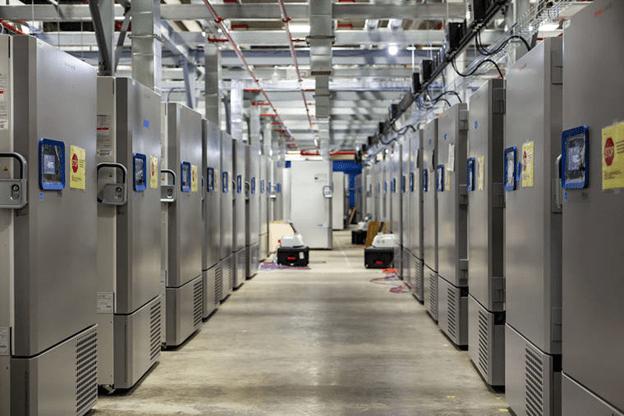
Applications of Ultra-Low Temperature Freezers
Ultra-low temperature freezers are commonly utilized in a wide range of scientific and research contexts where long-term sample preservation at ultra-low temperatures is required. Here are some applications:
- Biomedical Research
Ultra-low temperature freezers are critical for keeping biological samples for research purposes, such as tissues, cells, blood, and plasma. They’re employed in sectors including cancer research, genetics, stem cell research, and drug discovery, where keeping samples intact and viable is critical for precise and trustworthy results.
- Pharmaceuticals
In the pharmaceutical business, ultra-low freezers are critical for preserving sensitive medications, vaccines, and other medical goods that require ultra-cold temperatures for safety and efficacy. These freezers are also employed in the development and production of biologics, which are complex medicinal compounds that must be stored under precise conditions.
- Clinical Laboratories
Ultra-low lab freezers are used in clinical laboratories to store patient samples such as DNA, RNA, and serum for diagnostic tests and research. These freezers keep the samples in their original state, preserving their quality and integrity until they are analyzed.
- Forensics
In forensic laboratories, ultra-low temperature freezers are used to keep biological evidence, such as DNA samples, blood, and other biological materials, intact for DNA profiling and other forensic studies.
- Environmental Research
In environmental research, ultra-low freezers are used to preserve samples such as soil, water, and air for long-term preservation and analysis. These freezers aid in the preservation of samples and the production of accurate results in environmental investigations.
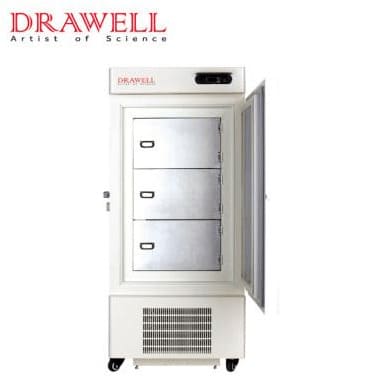
Advantages Of Ultra-Low Temperature Freezers
- Sample Preservation
The very cold temperatures of ultra-low freezers enable the preservation of samples for extended periods of time, allowing researchers to retain vital samples for future examination without degrading their quality.
- Reliability
Ultra-low temperature freezers are known for their dependable performance, with superior temperature control systems, temperature alarms, and data logging features that ensure samples are continually held at the proper temperature.
Ultra-low-temperature laboratory freezers are adaptable and can hold a wide range of sample types and sizes, such as vials, tubes, plates, and boxes, making them suited for a variety of research applications in diverse fields.
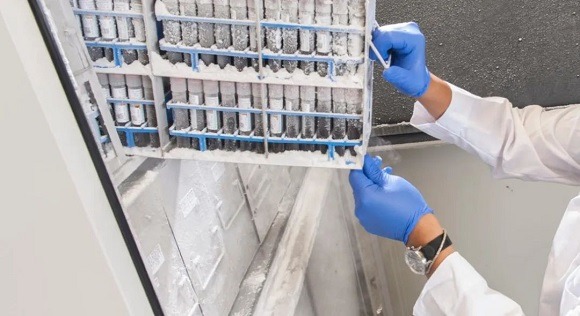
- Energy Efficiency
Many modern ultra-low lab freezers are designed with energy-saving features, such as high-efficiency compressors, improved insulation, and LED lighting, to reduce energy consumption and minimize operating costs.
- Advanced Features
Touch-screen interfaces, remote monitoring and control, and backup power supply choices are common features of ultra-low temperature freezers, which improve convenience and ease of use.
Factors Should Be Considered When Choosing Ultra-Low Temperature Laboratory Freezers
- Cost
Prices for ultra-low temperature freezers can range from several thousand to tens of thousands of dollars, depending on size, brand, and features. When investing in an ultra-low freezer, researchers must evaluate their budget and funding availability.
- Energy Consumption
Ultra-low freezers require a substantial amount of energy to sustain ultra-low temperatures, and the operational costs can quickly build up. It is critical to evaluate the energy usage and operational expenses of these freezers and to select energy-efficient ones whenever possible.
- Space Requirements
Ultra-low freezers are often huge and require enough laboratory space. To achieve optimal performance, researchers must examine the physical area available and prepare for proper installation and ventilation.
- Maintenance
Ultra-low lab freezers require regular maintenance, such as defrosting, cleaning, and temperature sensor calibration, to guarantee good operation and accurate temperature management. When employing these freezers, researchers must consider the maintenance requirements and expenditures.
Summary
Ultra-low temperature freezers are critical tools in current scientific research because they provide consistent and dependable storage of samples at ultra-cold temperatures.


